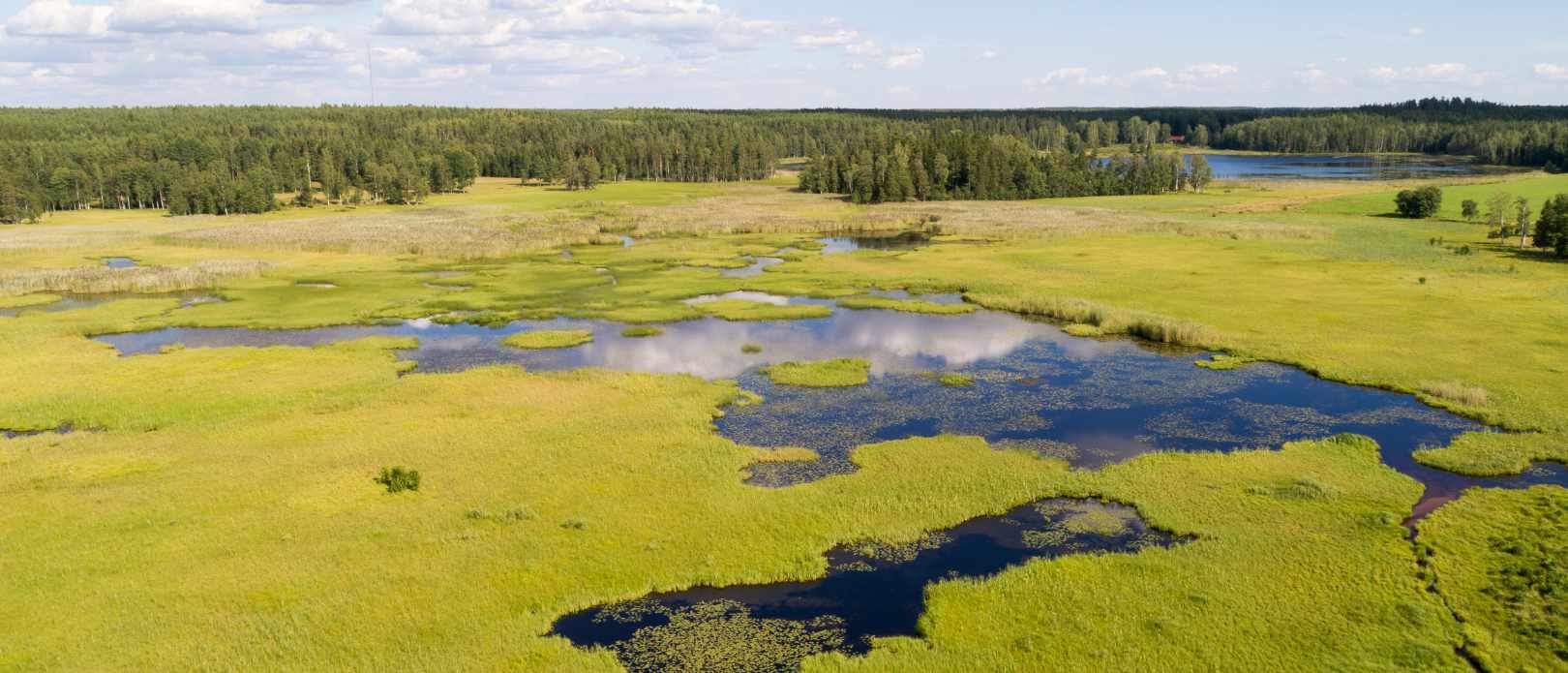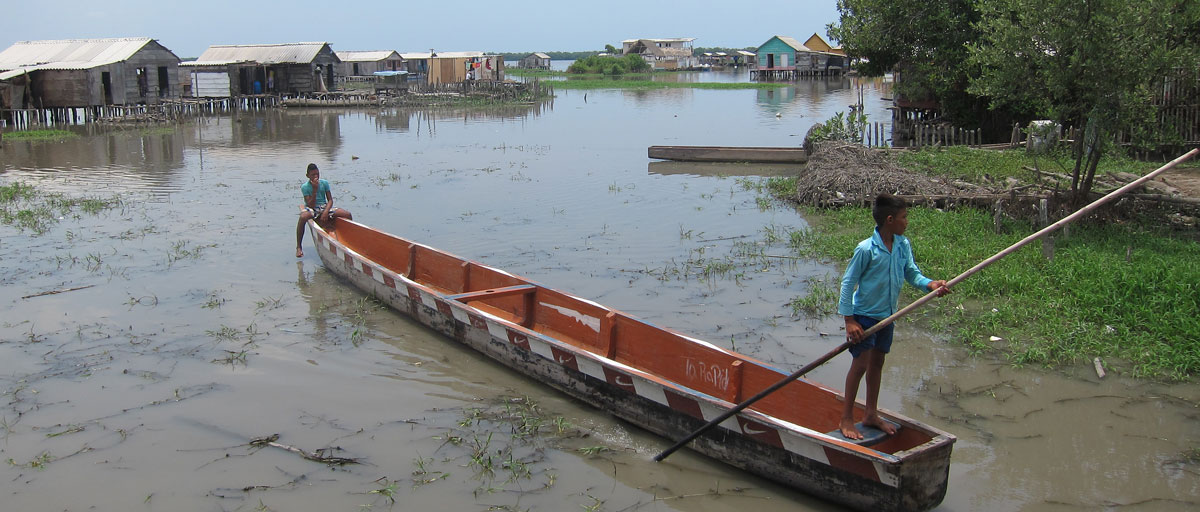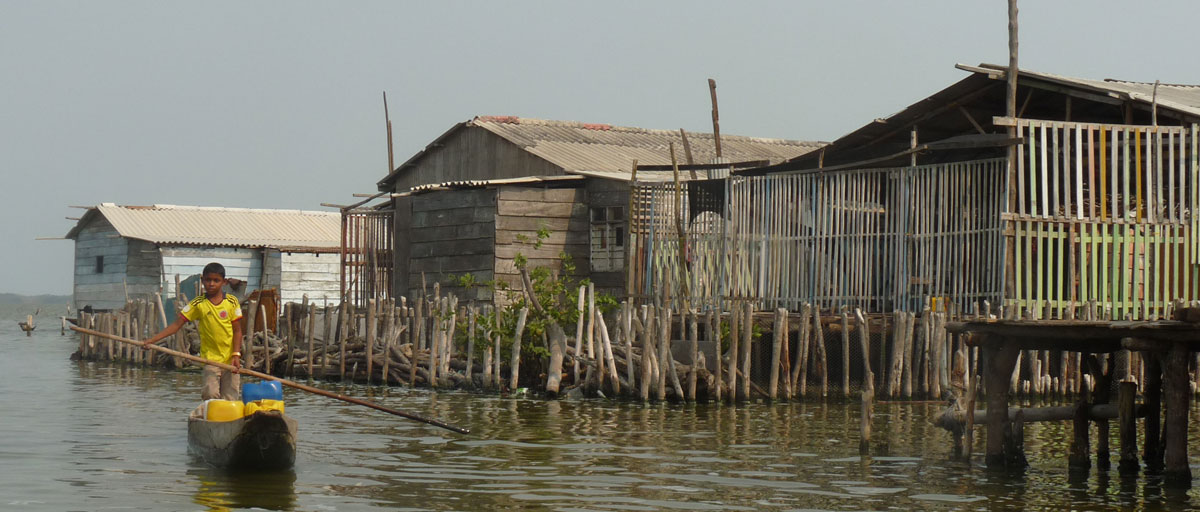wetlands
We need to talk about wetlands and how to save them

Wetlands support and provide habitat for a large share of global biodiversity. A new project will help promote restoration of wetlands and support more inclusive, community-based approaches. Photo: A. Maslennikov/Azote
Restoration of wetlands could make a significant contribution to the EU's climate targets. A new project can help us getting there
- Wetlands are being lost at alarming rates, which has direct implications for biodiversity and processes like carbon sequestration
- A lack of knowledge is hindering the effective restoration of wetlands and their ecosystem services
- A new project called ALFAwetlands will explore how we can promote wetland restoration while taking into account local opportunities and inclusivity
Wetlands are critically important ecosystems that support biodiversity, climate mitigation and adaptation, food production, freshwater availability, recreation, wellbeing, and so much more. Yet we are losing our wetlands three times faster than forests.
On World Wetlands Day 2022 we speak to centre researcher Erik Andersson, who along with a consortium of research institutes and wetlands organisations has just won an EU Horizon grant for the project ALFAwetlands, which aims to understand how we make inclusive wetland restoration happen.
We sat down with Erik to talk more about the project and why wetlands are so important.
Hi Erik. To start off with, what are wetlands and where do we find them?
A wetland is an area that is inundated or saturated by water for either all or part of the year, to the extent that the flora and fauna —particularly soil microbes and rooted plants—are adapted to anaerobic conditions. There is no one definition, but broadly speaking the term collectively includes peatlands, marshes, floodplains, and coastal wetlands like mangrove swamps.
The water in wetlands can be freshwater, brackish or saltwater, and they occur naturally on every continent except for Antarctica. Famous wetlands you may have heard of include the Everglades in Florida, the Kerala backwaters in India, the Camargue in southern France and the Mekong Delta in Vietnam.
Why is the destruction of wetlands such a concern?
The destruction of wetlands is a concern for many reasons. They support and provide habitat for a large share of global biodiversity. They also allow the cultivation of rice, an important staple food for half the world’s population, and provide a range of ecosystem services that benefit people, including water filtration, storm protection, flood control and recreation. And because they cover 5-8% of the world’s land area, they have a huge capacity to sequester carbon.
The EU aims to cut greenhouse gas emissions by at least 55% by 2030. What role can wetlands play here?
Wetland restoration is a nature-based solution that could make a significant contribution to both the EU's climate targets and Biodiversity Strategy for 2030 & Action Plan. However, lack of knowledge is hindering the effective use of wetlands in carbon mitigation and adaptation across agriculture, forestry, and other land uses.
High levels of uncertainty exist concerning wetlands’ spatial extent (where are they and how big are they?) as well as their ability to act as a carbon sink and source.
There is also a lack of comprehensive, cross-disciplinary knowledge around how we can promote wetland restoration and stop or offset destruction. What are the local opportunities and constraints for doing this inclusively?
You’re leading a work package in ALFAwetlands, a new Horizon project which hopes to tackle this. Tell us more about this project
With ALFAwetlands we want to advance the geospatial understanding of wetland use and degradation in Europe. The project will use a co-creation approach to develop procedures for promoting restoration and find ways for integrating multiple targets in comprehensive strategies, thereby supporting more inclusive, community-based approaches. It will also develop new methods and metrics for evaluating the social and environmental outcomes of wetland restoration.
The project insights will reach diverse audiences, and target stakeholder groups (who are already part of the project from the beginning) will be helped to make use of the findings and integrate them into their practice.
ALFAwetlands will be carried out in collaboration with a range of academic, governmental and civil society organisations. Why is a co-creation approach so important?
By bringing different types of stakeholders and knowledge together you can increase the legitimacy and quality of the place-based and sustainable solutions, and enhance learning, thus enabling and amplifying sustainability transition and transformation. However, co-creation does not just emerge. It is a challenge and ambition that needs careful thought. We will use new tools and approaches to study restoration processes in ways that are reflective, aligned with ongoing learning, and acknowledge that co-creation processes are potentially transformational and exist in a social, cultural, and political context.
We will take special care to create spaces for a plurality of knowledge and empowering different actors. Such spaces need to be explicit about who is included and not and acknowledge and manage power asymmetries between actors.









